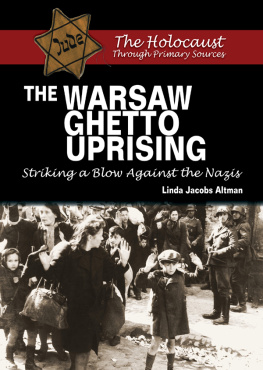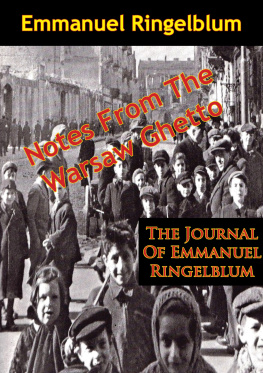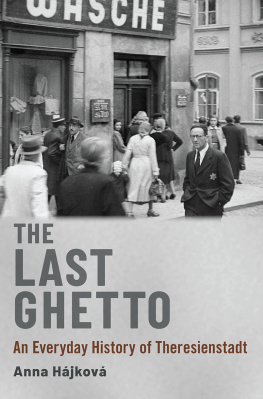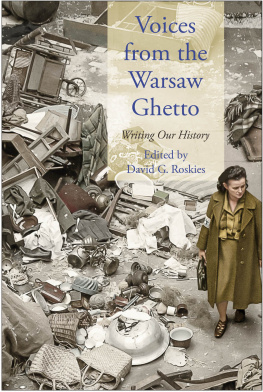
THE GHETTO IN GLOBAL HISTORY
The Ghetto in Global History explores the stubborn tenacity of the ghetto over time. As a concept, policy, and experience, the ghetto has served to maintain social, religious, and racial hierarchies over the past five centuries. Transnational in scope, this book allows readers to draw thought-provoking comparisons across time and space among ghettos that are not usually studied alongside one another.
The volume is structured around four main case studies, covering the first ghettos created for Jews in early modern Europe, the Nazis use of ghettos, the enclosure of African Americans in segregated areas in the United States, and the extreme segregation of blacks in South Africa. The contributors explore issues of discourse, power, and control; examine the internal structures of authority that prevailed; and document the lived experiences of ghetto inhabitants. By discussing ghettos as both tools of control and as sites of resistance, this book offers an unprecedented and fascinating range of interpretations of the meanings of the ghetto throughout history. It allows us to trace the circulation of the idea and practice over time and across continents, revealing new linkages between widely disparate settings.
Geographically and chronologically wide-ranging, The Ghetto in Global History will prove indispensable reading for all those interested in the history of spatial segregation, power dynamics, and racial and religious relations across the globe.
Wendy Z. Goldman is Paul Mellon Distinguished Professor of History at Carnegie Mellon University, United States. She is a social and political historian of Russia, and her publications include Hunger and War: Food Provisioning in the Soviet Union During World War II (2015, ed. with Donald Filtzer), Inventing the Enemy: Denunciation and Terror in Stalins Russia (2011), Terror and Democracy in the Age of Stalin: The Social Dynamics of Repression (2007), and Women at the Gates: Gender and Industry in Stalins Russia (2002).
Joe William Trotter, Jr. is Giant Eagle Professor of History and Social Justice and past History Department Chair at Carnegie Mellon University, United States. He also directs Carnegie Mellons Center for African American Urban Studies and the Economy (CAUSE) and is a past president of the Labor and Working Class History Association. His publications include Race and Renaissance: African Americans in Pittsburgh Since World War II (2010, co-authored with Jared N. Day), Black Milwaukee: The Making of an Industrial Proletariat, 191545 (second edition, 2007), and The African American Urban Experience: From the Colonial Era to the Present , with Earl Lewis and Tera W. Hunter (2004).
THE GHETTO IN GLOBAL HISTORY
1500 to the Present
Edited by Wendy Z. Goldman and Joe William Trotter, Jr.
First published 2018
by Routledge
2 Park Square, Milton Park, Abingdon, Oxon OX14 4RN
and by Routledge
711 Third Avenue, New York, NY 10017
Routledge is an imprint of the Taylor & Francis Group, an informa business
2018 selection and editorial matter, Wendy Z. Goldman and Joe William Trotter, Jr; individual chapters, the contributors.
The right of Wendy Z. Goldman and Joe William Trotter, Jr. to be identified as the authors of the editorial material, and of the authors for their individual chapters, has been asserted in accordance with sections 77 and 78 of the Copyright, Designs and Patents Act 1988.
All rights reserved. No part of this book may be reprinted or reproduced or utilised in any form or by any electronic, mechanical, or other means, now known or hereafter invented, including photocopying and recording, or in any information storage or retrieval system, without permission in writing from the publishers.
Trademark notice : Product or corporate names may be trademarks or registered trademarks, and are used only for identification and explanation without intent to infringe.
British Library Cataloguing in Publication Data
A catalogue record for this book is available from the British Library
Library of Congress Cataloging in Publication Data
A catalog record for this book has been requested
ISBN: 978-1-138-28229-2 (hbk)
ISBN: 978-1-138-28230-8 (pbk)
ISBN: 978-1-315-09977-4 (ebk)
Typeset in Bembo
by Deanta Global Publishing Services, Chennai, India
This book is dedicated with love to two strong, tough, and indomitable women:
Judith Trotsky Goldman and Eva Mae Trotter Powell
Judith (Yehudas) Trotsky Goldman (September 16, 1929December 25, 2015) was born and raised in a tenement on the Lower East Side of New York, the quintessential ghetto for Jewish immigrants to America. Her father was a leatherworker, and the whole family joined the fight for workers rights. She taught generations of children in the neighborhood at Seward Park High School and served as union chapter leader of the United Federation of Teachers. The neighborhood was poor, but she remembered when the line of children waiting to enter the Public Library on East Broadway stretched around the block, and the Garden Cafeteria was filled with communists, socialists, and anarchists arguing over politics. Scorning white flight to the suburbs, she raised her children on the Lower East Side. We grew up with Jewish, Italian, Chinese, Irish, African American, Puerto Rican, and Dominican neighbors. People sat outside on benches in the hot summer days and visited each other in the evenings. Women did laundry together and discussed what they would cook for dinner that night. They knew each others children, celebrated the milestones of life together, and created an entire world.
Eva Mae Trotter Powell (August 12, 1937) was born and raised in McDowell County, West Virginia. She is the second child of Joe William Trotter, Sr. and Thelma Odell Foster Trotter. She attended grade school in Hartwell and Berwind and graduated from Excelsior High School, near War, West Virginia. Following graduation from high school, she joined her older sister, Josie Lee Trotter Harris (19362016) in Massillon, Ohio. She worked a variety of jobs, married, raised her own three children, and provided consistent emotional and material support to me and my siblings among the Trotter-14. As the citys industrial workforce downsized and laid off workers, she also joined her first husband Marvin Jones and operated a neighborhood restaurant and bar called Evas. The Jones bar and grill provided an important place for an entire generation of young men and women to weather the storm of hard times in the citys shrinking manufacturing economy. Eva also became a pillar of our spiritual community at Friendship Baptist Church. But this book is also a tribute to all my 10 Sisters (Josie, Dee, Bobbie, Isalene, Doris, Mecca, Jessie, Voncille, and Sakina as well as Eva) who surmounted their own unique barriers and contributed to the well-being of the Trotter Family and the surrounding African American community.
CONTENTS
Wendy Z. Goldman and Joe William Trotter, Jr.
Benjamin Ravid
Kenneth Stow
Bernard Dov Cooperman
Samuel D. Gruber
Anika Walke
Helene J. Sinnreich
Gali Mir-Tibon
Zvi Gitelman and Lenore J. Weitzman
Tim Cole
Tobias Brinkmann
Avigail S. Oren
Stephen Robertson
Jeffrey D. Gonda
Brian Purnell
Dawne Y. Curry









